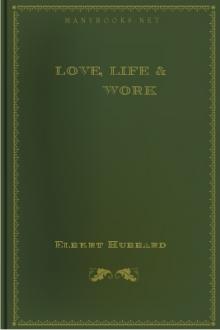Genre Essay. Page - 4

spheres, and in recent times it has sofaded away as to prevail no longer against man's reasonableunderstanding and the true religious feeling. People saw moreand more clearly, and now the majority see quite clearly, thesenselessness and immorality of subordinating their wills tothose of other people just like themselves, when they are biddento do what is contrary not only to their interests but also totheir moral sense. And so one might suppose that having lostconfidence in any religious authority for a belief in thedivinity of potentates of various kinds, people would try to freethemselves from subjection to it. But unfortunately not onlywere the rulers, who were considered supernatural beings,benefited by having the peoples in subjection, but as a result ofthe belief in, and during the rule of, these pseudodivine beings,ever larger and larger circles of people grouped and establishedthemselves around them, and under an appearance of governing tookadvantage of the people. And when the old

ts upon them for the price of the birds; others had bills of exchange in their pockets, or in belts. Some of these documents, carefully unwrinkled and dried, were little less fresh in appearance that day, than the present page will be under ordinary circumstances, after having been opened three or four times.
In that lonely place, it had not been easy to obtain even such common commodities in towns, as ordinary disinfectants. Pitch had been burnt in the church, as the readiest thing at hand, and the frying-pan in which it had bubbled over a brazier of coals was still there, with its ashes. Hard by the Communion-Table, were some boots that had been taken off the drowned and preserved--a gold-digger's boot, cut down the leg for its removal--a trodden- down man's ankle-boot with a buff cloth top--and others--soaked and sandy, weedy and salt.
From the church, we passed out into the churchyard. Here, there lay, at that time, one hundred and forty-five bodies, that had come ashore from the wreck. He h

asingly set up to give absentee operators control over the peopleactually using the computer system.
The SPA, which actually stands for Software Publisher's Association,is not today an official police force. Unofficially, it acts likeone. It invites people to inform on their coworkers and friends; likethe Clinton Administration, it advocates a policy of collectiveresponsibility whereby computer owners must actively enforce copyrightor be punished.
The SPA is currently threatening small Internet service providers,demanding they permit the SPA to monitor all users. Most ISPssurrender when threatened, because they cannot afford to fight back incourt. (Atlanta Journal-Constitution, 1 Oct 96, D3.) At least oneISP, Community ConneXion in Oakland CA, refused the demand and wasactually sued. The SPA is said to havedropped this suit recently, but they are sure to continue the campaignin various other ways.
The university security policies described above are not imaginary.For example, a

and his helpers go from town to town and fromcity to city and work up this excitation as a business. They are paidfor their services a thousand dollars a week, or down to what they canget from collections. Sometimes they work on a guaranty, and at othertimes on a percentage or contingent fee, or both.
Towns especially in need of Mr. Chapman's assistance will please sendfor circulars, terms and testimonials. No souls saved--no pay.
The basic element of the revival is hypnotism. The scheme of bringingabout the hypnosis, or the obfuscation of the intellect, has takengenerations to carefully perfect. The plan is first to depress thespirit to a point where the subject is incapable of independent thought.Mournful music, a monotonous voice of woe, tearful appeals to God,dreary groans, the whole mingled with pious ejaculations, all tend toproduce a terrifying effect upon the auditor. The thought of God'sdispleasure is constantly dwelt upon--the idea of guilt, death andeternal torment. If the victim

passes through his body. He, and us, are released from our torture.
In this passive and mysterious medium, when we are brought into a state of vicarious tension, we are more likely to swallow whichever pill and accept whatever solution that the storyteller offers.
Interactivity: the birth of resistance
Interactive media changed this equation. Imagine if your father were watching that aspirin commercial back in 1955 on his old console television. Even if he suspected that he was watching a commercial designed to put him in a state of anxiety, in order to change the channel and remove himself from the externally imposed tension, he would have to move the popcorn off his lap, pull up the lever on his recliner, walk up to the television set and manually turn the dial. All that amounts to a somewhat rebellious action for a bleary-eyed television viewer. To sit through the rest of the commercial, however harrowing, might cost him only a tiny quantity of human energy until the pills come out of

riter, therefore, of the present day to choose battles for hisfavourite topic, merely because they were battles, merely becauseso many myriads of troops were arrayed in them, and so manyhundreds or thousands of human beings stabbed, hewed, or shoteach other to death during them, would argue strange weakness ordepravity of mind. Yet it cannot be denied that a fearful andwonderful interest is attached to these scenes of carnage. Thereis undeniable greatness in the disciplined courage, and in thelove of honour, which make the combatants confront agony anddestruction. And the powers of the human intellect are rarelymore strongly displayed than they are in the Commander, whoregulates, arrays, and wields at his will these masses of armeddisputants; who, cool yet daring, in the midst of peril reflectson all, and provides for all, ever ready with fresh resources anddesigns, as the vicissitudes of the storm of slaughter require.But these qualities, however high they may appear, are to befound in the

n the political side.
New inventions, new machines, new methods of transportation and intercourse are making over the whole scene of action year by year. It is an absolute impossibility to educate the child for any fixed station in life. So far as education is conducted unconsciously or consciously on this basis, it results in fitting the future citizen for no station in life, but makes him a drone, a hanger-on, or an actual retarding influence in the onward movement. Instead of caring for himself and for others, he becomes one who has himself to be cared for. Here, too, the ethical responsibility of the school on the social side must be interpreted in the broadest and freest spirit; it is equivalent to that training of the child which will give him such possession of himself that he may take charge of himself; may not only adapt himself to the changes that are going on, but have power to shape and direct them.
Apart from participation in social life, the school has no moral end nor aim. As long

67, is a certain fact, of which nobody will deny the sister island the honour and glory; but, it seems to me, he was no more an Irishman than a man born of English parents at Calcutta is a Hindoo. Goldsmith was an Irishman, and always an Irishman: Steele was an Irishman, and always an Irishman: Swift's heart was English and in England, his habits English, his logic eminently English; his statement is elaborately simple; he shuns tropes and metaphors, and uses his ideas and words with a wise thrift and economy, as he used his money: with which he could be generous and splendid upon great occasions, but which he husbanded when there was no need to spend it. He never indulges in needless extravagance of rhetoric, lavish epithets, profuse imagery. He lays his opinion before you with a grave simplicity and a perfect neatness. Dreading ridicule too, as a man of his humour--above all an Englishman of his humour--certainly would, he is afraid to use the poetical power which he really possessed; one often fancies in r

them, as well as correct theevil and repress them, would be the duty of society and governments,if less noble thoughts did not occupy their attention. The evil isthat the indolence in the Philippines is a magnified indolence, anindolence of the snowball type, if we may be permitted the expression,an evil that increases in direct proportion to the square of theperiods of time, an effect of misgovernment and of backwardness,as we said, and not a cause thereof. Others will hold the contraryopinion, especially those who have a hand in the misgovernment, butwe do not care; we have made an assertion and are going to prove it.
II
When in consequence of a long chronic illness the condition of thepatient is examined, the question may arise whether the weakeningof the fibers and the debility of the organs are the cause of themalady's continuing or the effect of the bad treatment that prolongsits action. The attending physician attributes the entire failure ofhis skill to the poor constitution o

nately we are not without a clue to his methods--henot only had the best of teachers, but continued his training all throughhis life. When we consider his labors, the claim of the busy man of to-daythat he has "no time" seems almost frivolous.
The thoughts of Marcus Aurelius (of which the following citations arefrom Long's translation) were written, not for self exploration, nor fromdelight in rounded periods, but for his own guidance. That he was in factguided by his principles no better illustration offers than his magnanimitytoward the adherents of one who would have usurped the throne of theCæsars. The observation of Long that fine thoughts and moral dissertationsfrom men who have not worked and suffered may be read, but will beforgotten, seems to have been exemplified in the comparative oblivion intowhich the philosophy of Epicurus has fallen.
It is with the ethical side of the philosophy of Marcus Aurelius that weare concerned, and with that portion only which bears on the question of